I have a question referencing the usage of concurrently running tasks in Azure Functions, on the consumption plan.
One part of our application allows users to connect their mail accounts, then downloads messages every 15 minutes. We have azure function to do so, one for all users. The thing is, as users count increases, the function need's more time to execute.
In order to mitigate a timeout case, I've changed our function logic. You can find some code below. Now it creates a separate task for each user and then waits for all of them to finish. There is also some exception handling implemented, but that's not the topic for today.
The problem is, that when I check some logs, I see executions as the functions weren't executed simultaneously, but rather one after one. Now I wonder if I made some mistake in my code, or is it a thing with azure functions that they cannot run in such a scenario (I haven't found anything suggesting it on the Microsoft sites, quite the opposite actually)
PS - I do know about durable functions, however, for some reason I'd like to resolve this issue without them.
My code:
List<Task<List<MailMessage>>> tasks = new List<Task<List<MailMessage>>>();
foreach (var account in accounts)
{
using (var cancellationTokenSource = new CancellationTokenSource(TimeSpan.FromMinutes(6)))
{
try
{
tasks.Add(GetMailsForUser(account, cancellationTokenSource.Token, log));
}
catch (TaskCanceledException)
{
log.LogInformation("Task was cancelled");
}
}
}
try
{
await Task.WhenAll(tasks.ToArray());
}
catch(AggregateException aex)
{
aex.Handle(ex =>
{
TaskCanceledException tcex = ex as TaskCanceledException;
if (tcex != null)
{
log.LogInformation("Handling cancellation of task {0}", tcex.Task.Id);
return true;
}
return false;
});
}
log.LogInformation($"Zakończono pobieranie wiadomości.");
private async Task<List<MailMessage>> GetMailsForUser(MailAccount account, CancellationToken cancellationToken, ILogger log)
{
log.LogInformation($"[{account.UserID}] Rozpoczęto pobieranie danych dla konta {account.EmailAddress}");
IEnumerable<MailMessage> mails;
try
{
using (var client = _mailClientFactory.GetIncomingMailClient(account))
{
mails = client.GetNewest(false);
}
log.LogInformation($"[{account.UserID}] Pobrano {mails.Count()} wiadomości dla konta {account.EmailAddress}.");
return mails.ToList();
}
catch (Exception ex)
{
log.LogWarning($"[{account.UserID}] Nie udało się pobrać wiadomości dla konta {account.EmailAddress}");
log.LogError($"[{account.UserID}] {ex.Message} {ex.StackTrace}");
return new List<MailMessage>();
}
}
Output:
